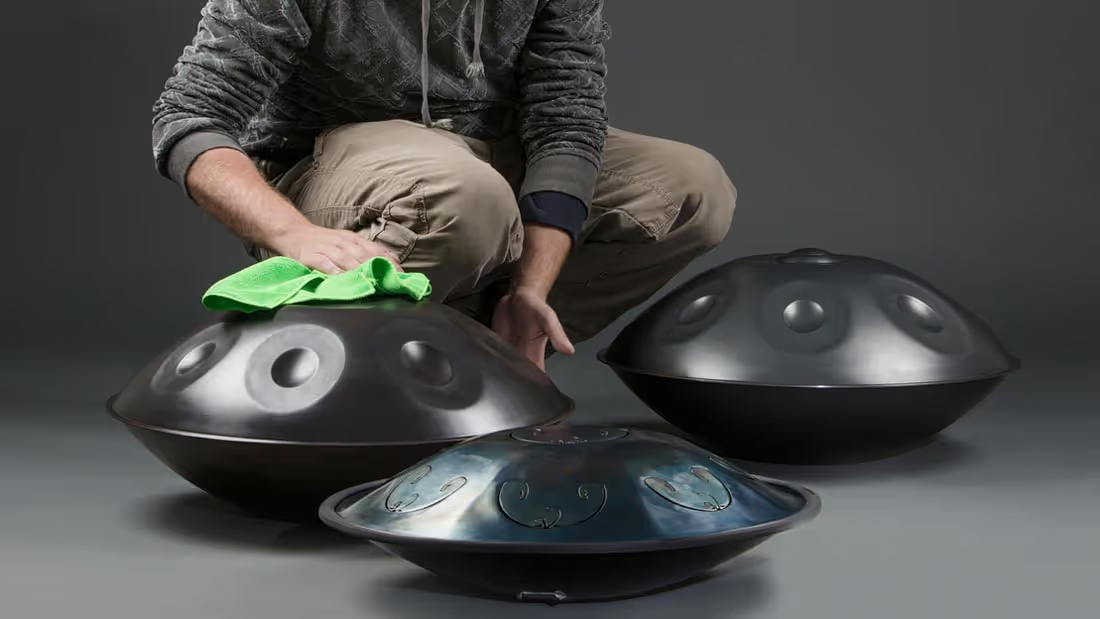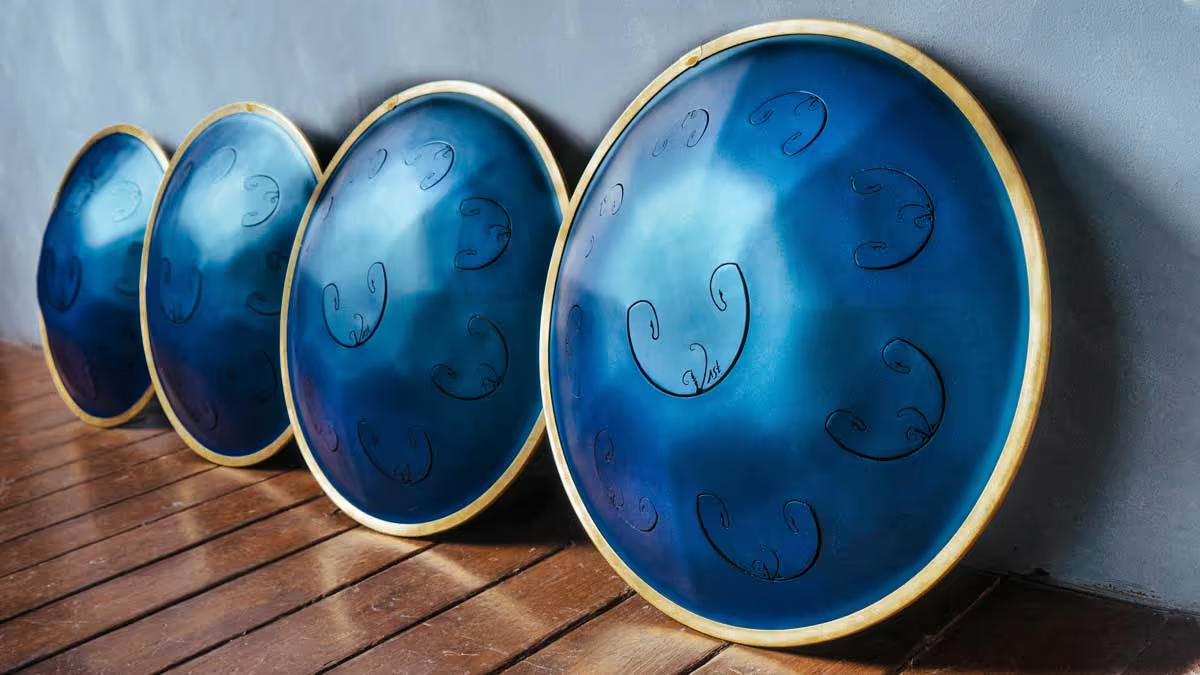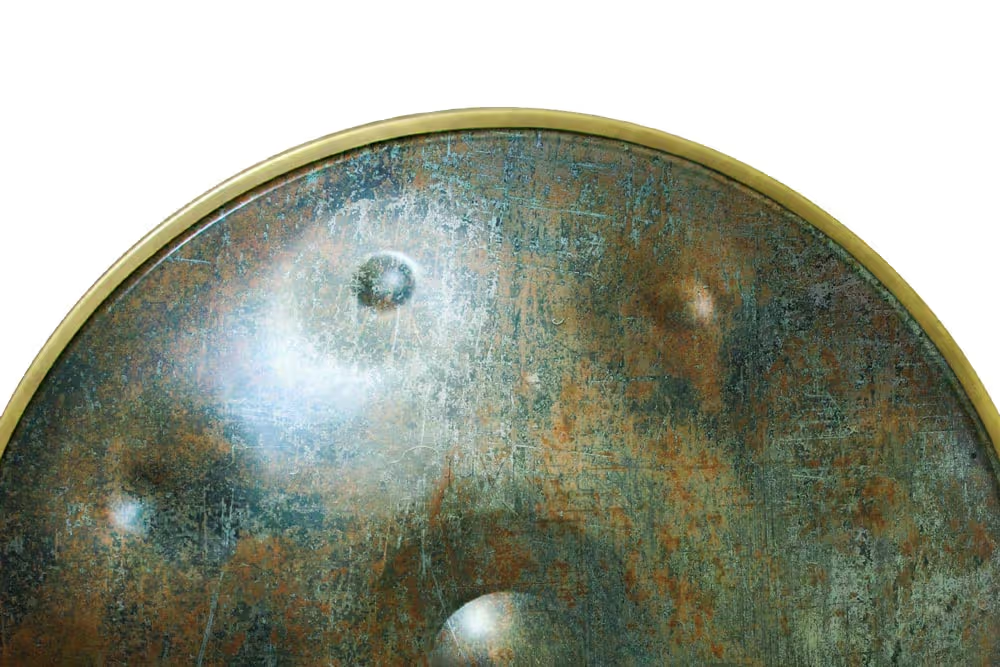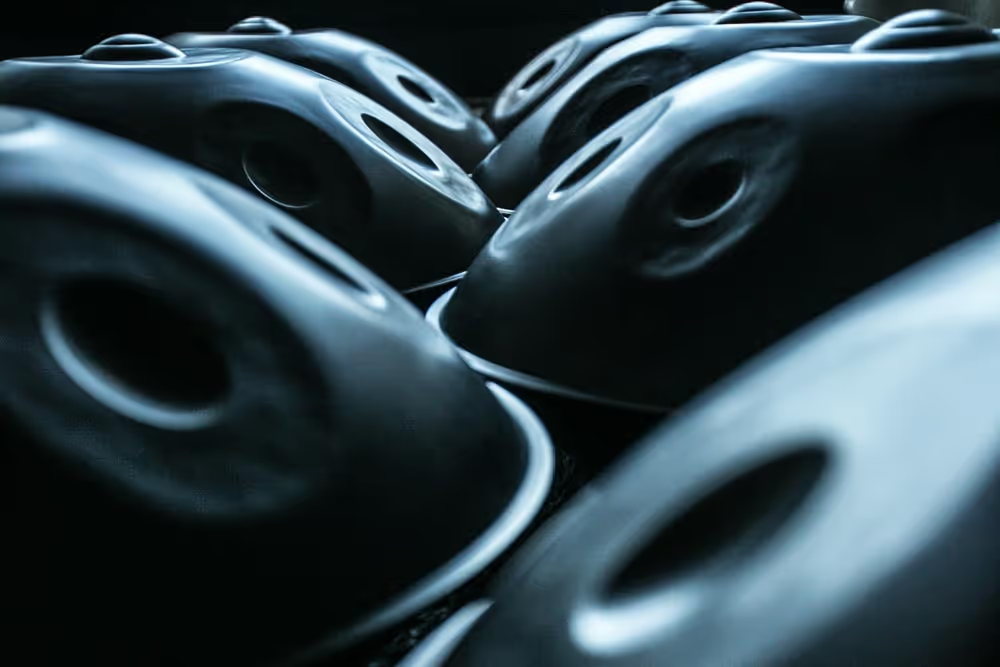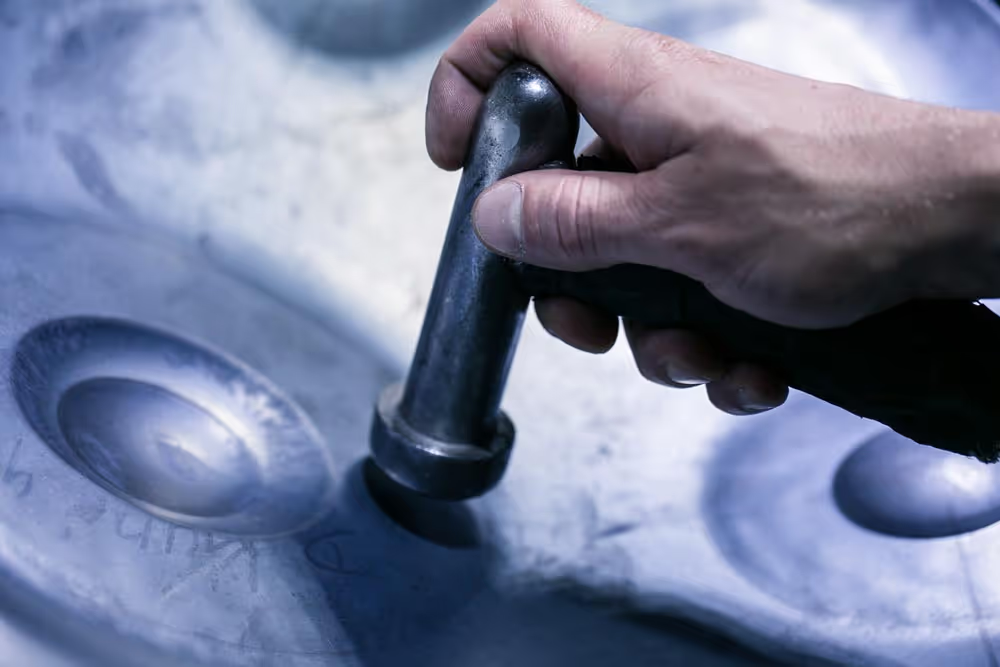There is all sorts of conflicting advice out there on how to clean and protect your beloved handpan. So I turned to my good friend and maker of the Iskra at Symphonic Steel, Sean Beever. He’s been working with steel since he was 12, crafting handpans since 2013 and is a pro when it comes to looking after them. He helped me to compile this essential guide for all you handpan owners.
Knowing how to care for your handpan properly can keep it looking and feeling good for a long time to come. It’s always best to check with your handpan maker before you begin as they may have advice that is unique to their creations and/or some definite no-nos. 😉
However, maintenance can be broken down into 3 key areas:
- Cleaning
- Protection
- Treatment against rust
1. How to clean your handpan?
Cleaning your handpan is the most important step of all! Keeping the surface in a clean, dry condition will help to preserve the finish.
- Wipe down
First and foremost, every time you play, get into the habit of wiping down your handpan with a soft, clean, dry cloth, preferably microfibre. It is your best friend when it comes to handpan maintenance. We have the curse of grubby and sweaty fingers. Sweat from our hands can deposit salts onto the surface, which accelerates the formation of rust. Some people’s hands have more corrosive sweat than others, so always wash and thoroughly dry your hands before playing. Even if you have perfect hands, add in dust and dirt, rain, humidity, the sins of the beach and – shock, horror – the first signs of rust… and sometimes your trusty cloth isn’t enough. - Use Alcohol
We don’t mean gin 😅 We mean isopropyl alcohol, or better still, the more gentle rubbing alcohol / surgical spirit (which is either isopropyl alcohol or ethanol based - usually 50-75% - thinned down with a dilutant like water. When a simple wipe down isn’t enough, periodically put a generous splash of isopropyl/rubbing alcohol onto a soft cleaning cloth and give your handpan a thorough clean. Include both sides, the rim AND the inside. Don’t be afraid to press quite firmly on any stubborn smudges.
Please note: If your handpan has oil on it, this process will remove most of it, so it will need to be re-applied (see below for oiling instruction).
Some suggest that acetone can also be used to strip the oil, but this is very powerful and may degrade the finish and the glue holding the handpan together, so we recommend avoiding it if possible.
2. How to prevent rust on your handpan
First keep your handpan clean and dry. Store it out of its case where possible, and keep the handpan case clean and dry too. This may be all you need to do in order to prevent rust. Pay particular attention if you live in a humid environment or near the coast.
Some handpans can be oiled to further protect against rust, some can’t. Again, consult the maker of your handpan before applying oil.
Now here’s the technie part… many handpans are heat-treated in a process known as gas nitriding. This helps fight against rust, but it is not rust-proof. In some situations, dependent on the parameters of the gas nitriding and steel composition, the surface of the heat-treated steel can become very porous. This porosity will soak up excess oil like a sponge, which can end up muting or dulling the sound of the handpan.
It is also important to note that not all gas nitriding is the same! Treatment times, temperatures and other variables can change quite a bit from maker to maker. This causes some nitrided handpans to be more rust-resistant than others.
If oil is okay to use on your handpan, the frequency of application can vary depending on your climate. If you live near the ocean, it is a good idea to oil your handpan at least once per month, perhaps more often than that. You will need to keep an eye out for small rust spots and if you see any, then it is time to re-apply oil! Humid climates also require more diligence. Handpans kept in very dry climates can go for months without needing more oil.
If you don’t mind spending a little extra time when oiling your handpan, it is also a good idea to remove most of the old oil before applying the fresh oil. This can usually be safely done by using isopropyl alcohol (or rubbing alcohol). Again, please ask the maker of your handpan if this is okay before doing it!
Use a light organic oil. The reason for an organic oil is simply because we play the instrument with our hands, so we want it to be safe! Good options are grapeseed oil and coconut oil. Some oils have been developed specifically for handpans, such as Phoenix Oil, Metal Sounds Oils or Isthmus Oil.
Stainless steel handpans will generally not need as much attention paid to them to prevent rust. While stainless steel is not completely rust-proof, it is extremely rust resistant. In addition, there are many different alloys of stainless steel and some are more rust resistant than others. Oil can be applied to stainless steel handpans as well, usually without any detrimental effects.
3. How to remove rust from your handpan
If rust begins to appear on your handpan, don’t panic! Rust won’t affect the sound of your handpan, unless it were to get unbelievably rusty (you would have to leave it outside, next to the ocean, for many years). Rust is really just a cosmetic concern.
Here’s MasterTheHandpan’s simple guide to removing rust from your handpan.
Depending on maker advice, material, treatment and where you live, you’re going to need at least a soft, clean, dry cloth and perhaps some of the following:

Step 1: Clean

As before, give your handpan a good wipe down with a clean, dry microfibre cloth. Alcohol optional - a generous amount on a cloth and a thorough clean over all surfaces, inside and out.
Step 2 (optional): Scour

Something I learnt from Felix Rohner, if you have the beginnings of a rust spot or a stubborn stain on your handpan, dampen the green side of the scourer with a tiny splash of water and brush ever-so gently over the rust.
Keep in mind that this may also remove any finish that the handpan has on it, so be careful and use it wisely!
As mentioned, it is always best to consult with the maker of your handpan. They will always know the best ways to take care of your precious instrument.
Step 3 (optional): Rust Removal

For slightly bigger rust spots, the Miracle Cloth does exactly what it says – performs miracles! Buff very gently in a circular motion on the spot.
While this will remove rust, it will also remove any oxidation layer on the handpan. This oxidation layer is what gives some handpans their coloring, so if the Miracle Cloth removes such, you may be left with a plain silver finish on the handpan wherever the cloth was used. Getting rid of the rust is important though, as it does tend to spread once it starts, so don’t delay!
Step 4: Clean again

If you do either Step 2 or 3 above, repeat Step 1 to remove any residue.
Step 5 (optional): Protect

Drizzle a few drops of organic oil, or oils developed specifically for handpans like Phoenix oil, Metal Sounds Oil or Isthmus Oil onto your instrument and work it in over all surfaces with a second soft cloth. Leave for a few minutes to perform its magic.
Step 6: Wipe off

If you use oil, wipe off any excess with a third dry, soft cloth.
Step 7 (not optional): Enjoy
Now your handpan is clean and protected, have some fun with it!
I would like to conclude with a big thank you to Sean Beever at Symphonic Steel for sharing his knowledge and expertise with us all. I hope that his advice, and our handy guide, proves valuable to all your handpan owners over the years to come. Live long, rust-free!
Cover photo credit: Phoenix Oil



